17 Jan Stories from the Archives: Ebb and Zeb Collins at the Medicine Show
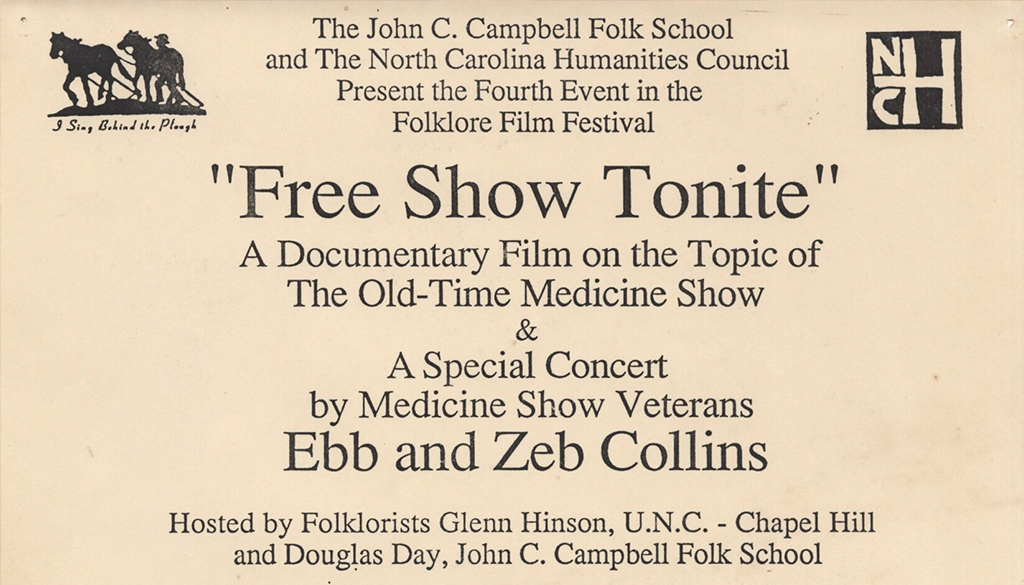
Would you rather stream video content with commercials or pay for a subscription without ads? Most people don’t love sitting through commercials, but the appeal of free entertainment is clear. This was just as true before online streaming and even before television.
Read more about Ebb & Zeb Collins and the Medicine Show below..
The centuries-old tradition of the traveling medicine show capitalized on people’s preference for anything free. It’s a pretty sweet deal: a troupe of entertainers pulls into town, sets up a temporary stage, and puts on a full bill of performances, all for free. In theory, local people could wander up and witness hours of music, skits, longer plays, and special features like magic shows or horse tricks without spending a dime. In reality, medicine shows worked every angle they could to part audience members from their money. The performances themselves led up to the grand event, which was essentially one elaborate advertisement for whatever magical cure the doc was selling. Although the show itself was free, many people left at least a few cents lighter.
Brothers James Everett “Ebb” Collins and Floyd “Zeb” Collins learned the value of a free show. The John C. Campbell Folk School Fain Archives houses an oral history interview where folklorists Douglas Day and Glenn Hinson talk to Ebb and Zeb about their music career from the 1930s into the 1980s, with much attention paid to their time spent working on traveling medicine shows. Zeb’s wife Mary Jo Collins also features on the interview and shares her memories of working the concession stand and raising kids on the road.
The Collins brothers came from Morganton, Georgia, not far from the North Carolina border. Ebb played fiddle and guitar. Zeb played upright bass and mandolin. They marketed themselves as a family duo and played music on local radio shows and small clubs when possible, but they struggled to earn enough money that way. They took on jobs like hauling logs and laying bricks to pay their bills.
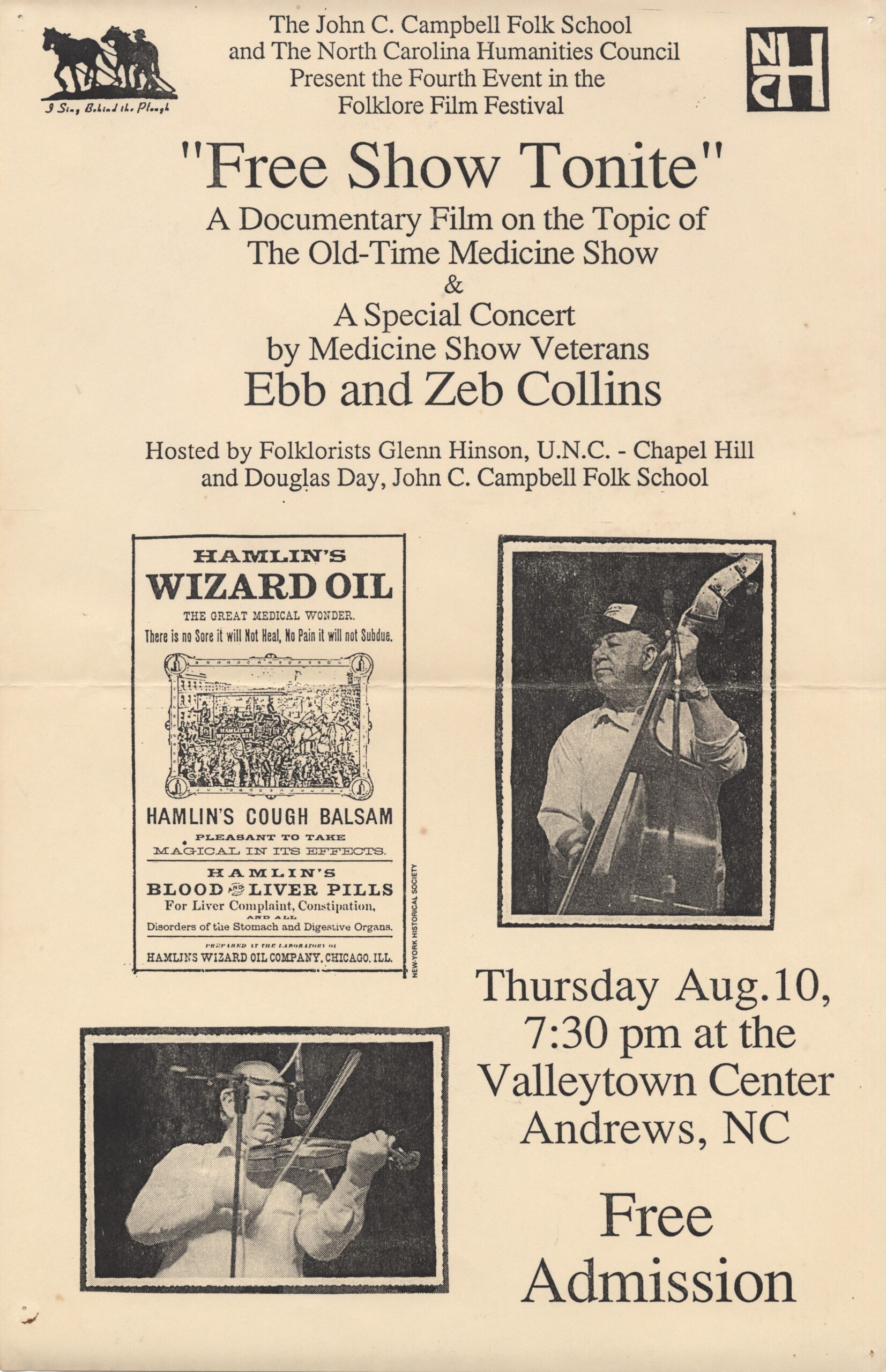
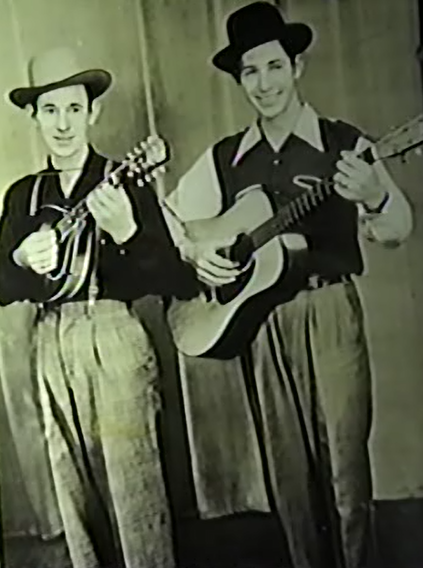
In 1948, some musician friends invited Ebb and Zeb to join them on a big, successful show run by radio star Curley Miller that paid fifty dollars a week (nothing to sniff at in 1948!). They met their friends in Pennsylvania, eager to finally earn some significant money in show business, but were curious to find out how a radio show could afford to pay its performers so much. When they arrived, Miller explained, “Well, we sell a little tonic.” It wasn’t a radio show but a traveling medicine show.
This discovery almost scared the brothers away. Medicine shows had a bit of a reputation. It took a lot of sweet-talking and wheel-greasing to get permission from each town to set up and do a show, especially one that included rowdy performances and the sale of dubious elixirs. Ebb and Zeb don’t mention what swayed them in the oral history interviews or any other recording I’ve heard, but they did decide to join up with “Doc” Curley Miller’s medicine show. The promise of reliable income and guaranteed adventure was probably pretty appealing for two young men looking to make a living with their music. They stayed on the road with different traveling medicine shows until 1954. They also ended up being chased out of town (or politely asked to leave) once or twice, but that’s show biz.
Medicine shows were always free to attend (sometimes ruffling the feathers of local theater owners when people would rather see a free medicine show than pay for a movie ticket). Instead of relying on ticket sales, they made their money by selling tonics, tinctures, liniments, and pills that would supposedly cure a variety of ailments—everything “from corns to bunions to galloping dandruff,” Zeb claimed. On top of that, they could boost their profits by selling concessions and raffling off prizes. Mary Jo remembers tricks like adding extra salt to the popcorn to sell more shaved ice. Ebb and Zeb guess that they made about as much money from selling concessions as they did selling medicine. Even though admission was free, there were plenty of ways to spend money at a medicine show. As the brothers mention, a successful medicine show could afford to pay its performers more than radio and more than working local clubs.
The emphasis was really much more on the “show” than on the “medicine.” While medicine shows did make money from selling questionable cure-alls, and a great deal of showmanship was put into pitching the medicine, a large portion of each show was made up of variety acts meant to draw people in and hold their attention. That’s where Ebb and Zeb came in. They would typically kick off the show with a rousing fiddle tune, switch off with other musical acts, and jump back in to perform comedy skits throughout the night. Many people’s interest was probably in seeing such a range and number of performances at no cost rather than seeking out a cure to their ails.
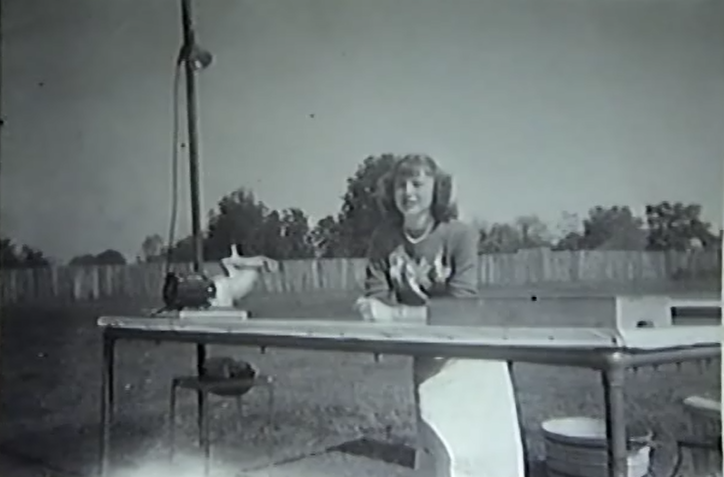
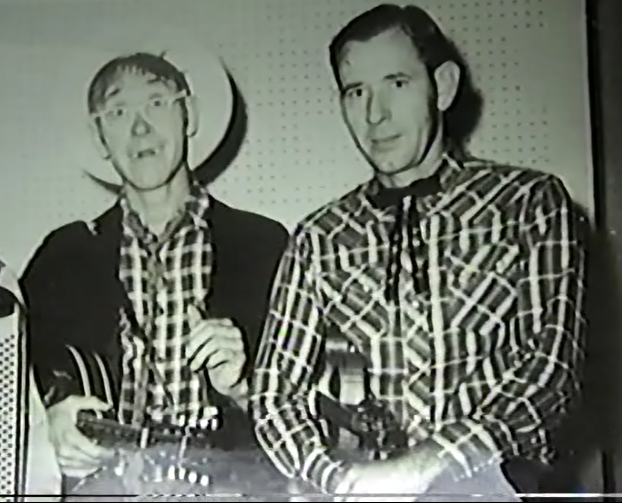
Zeb fell naturally into the comedic roles for medicine show skits. Ebb was more of a straight man. Can you guess which is which in the photograph above?
Some performers came into the medicine show business after working in radio, like Ebb and Zeb did. Others worked music parks, cowboy shows, and circuses. Besides Curley Miller, Ebb and Zeb sometimes performed with musicians who were locally or nationally known, including Snuffy Jenkins, the Osborne Brothers, Jimmy Martin, and Norman Blake. The brothers also claim that Zeb played in the first bluegrass band to ever perform in Las Vegas.
Medicine shows had long been falling out of fashion by the time Ebb and Zeb left the business in the mid-1950s. They went on to work other jobs both in and out of the entertainment world, but they continued to play music together for many years. They returned to north Georgia and made connections with people at the John C. Campbell Folk School, where they would come to play music and talk about their experiences several times throughout the years. Ebb especially spent a lot of time playing at the Folk School and at one time taught weekly fiddle lessons. One summer, the Folk School presented a showing of a documentary film about medicine shows called “Free Show Tonite” in Andrews, North Carolina. Ebb and Zeb were called in as the local medicine show veterans for a special performance after the showing. The oral history interview was recorded at Zeb and Mary Jo’s home in Morganton the next day.
The archives also house several recordings of Ebb and Zeb performing at the Folk School. In one concert they gave in Keith House in 1988, a friend reads out the text of a handbill he claims to have found in Ebb’s car: “An old-time music delight. Hoedowns, humor, songs, and stories (true and not so true), all with honest-to-goodness gusto. Gusto meaning vigorous enjoyment, taste with relish and zest. Available for dances, concerts, celebrations, festivals, pig pickin’s, whistle stops, extravaganzas of all kinds, and any other unforgettable occasion that just might pop up. It’s been a long and winding road from the medicine shows, the barn dances, and the radio days. Now back with guaranteed curative and restorative powers, Ebb and Zeb Collins (give them a call, their families love to get them out of the house).”
Hear Ebb and Zeb play “Orange Blossom Special” at the Folk School in 1988.
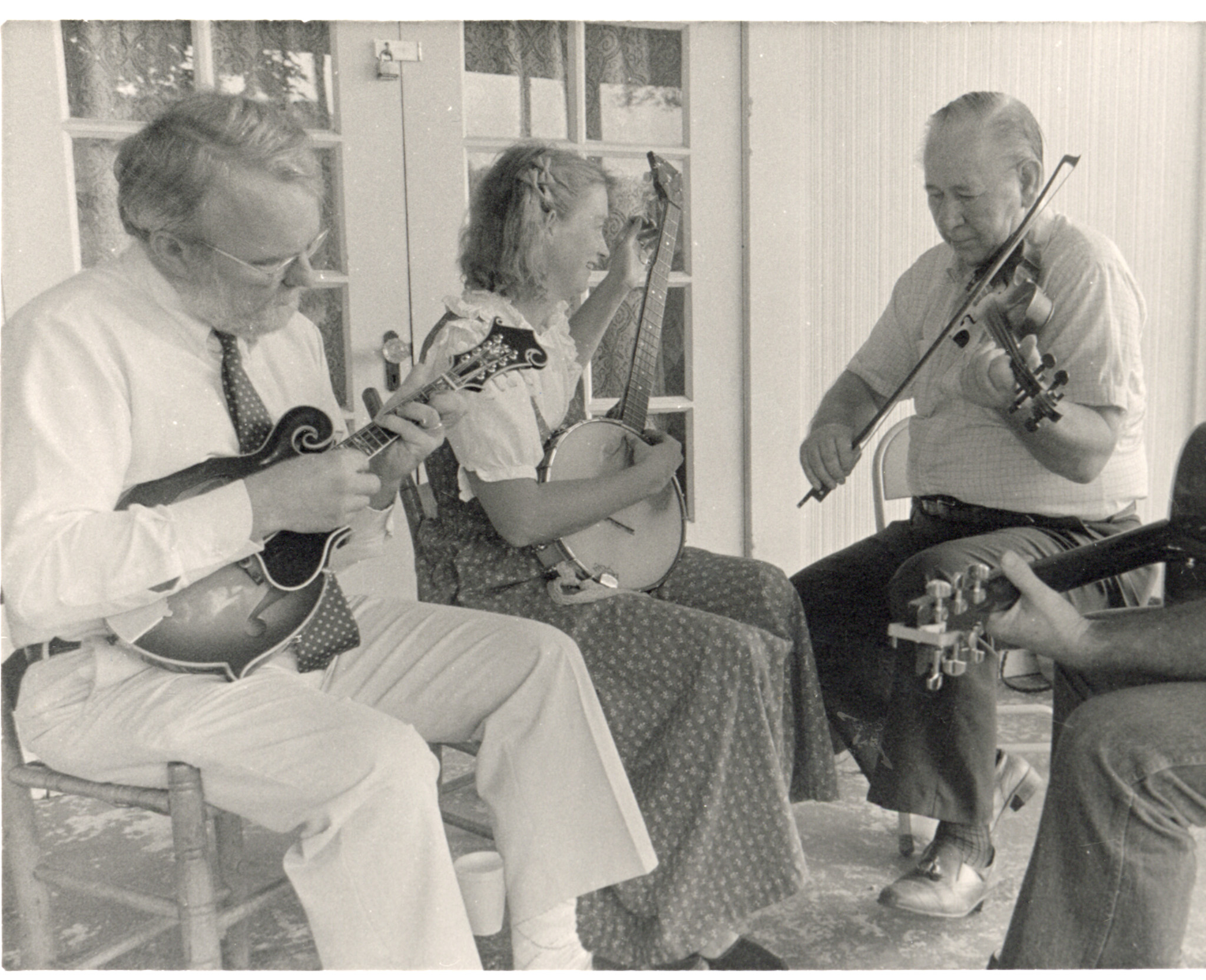
(left to right) David Liden, Martha Owen, Ebb Collins, and David Anderson playing music together.



No Comments